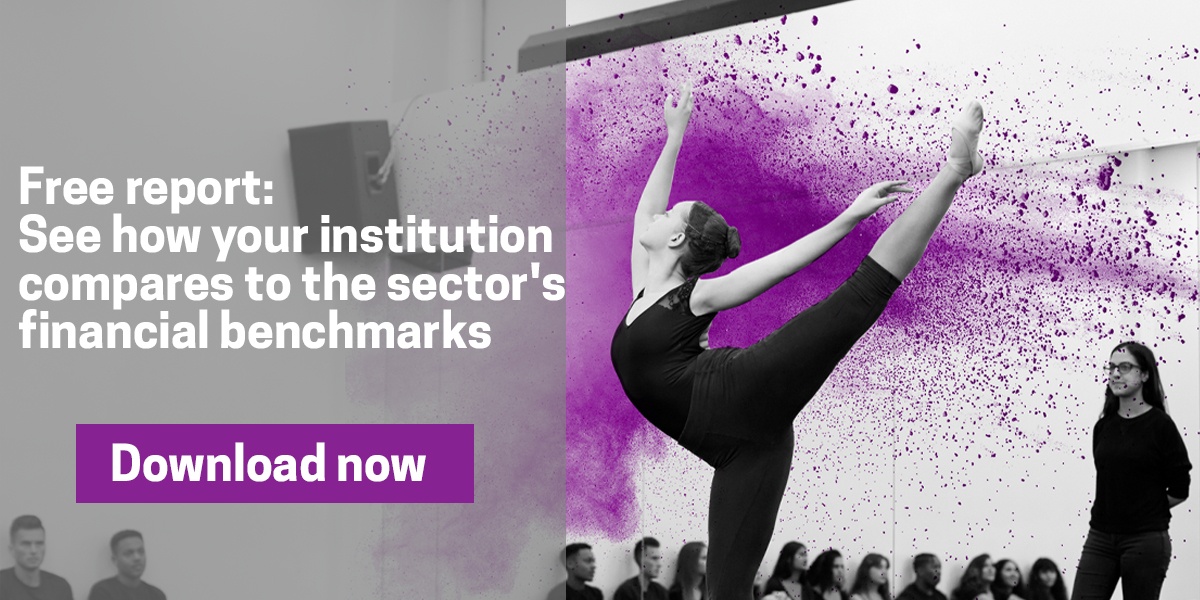Can university Finance leaders really be a catalyst for staff happiness and harmony? As uncertainties for HE Finance leaders prevail - prospects for international students; student and staff recruitment and retention worries; pension contributions – the odds might seem stacked against them in this respect. And true, happiness isn’t probably one of the Finance Director’s strategic initiatives, but, given that their decisions often have crucial effects on the university’s staff, we’re sure that most FDs would embrace a culture where Finance is a bastion of fairness and objectivity that spreads harmony.
Because Professional Services are commonly equivalent to 42% of core income and tends to reflect 47% of core expenditure*, it stands to reason that with each wave of efficiencies required by universities, finance leaders will necessarily scrutinise this area of operations. And naturally Heads of Professional Services will always eagerly debate why their area justifies greater spend than other services – they are passionate about their delivery and want to protect their budgets. So, bringing fairness and equality to those decisions in a way that can be evidenced, may not of course instil happiness as such, but certainly goes some way to achieving harmony across the Professional Services functions
*2022 UK HE benchmark data
A recent customer of Benchmarking put it like this:
“Whatever the reason we've got to where we are now, it's not sustainable, and therefore, here are some objective comparisons that we can use to inform decisions and change something about that. And it takes it away from being an opinion. The depth and the reputation of the Tribal work - the fact that we're able to say this is a well-respected piece of work done for the sector – means it's not just us saying it. As an example, when reviewing IT, we were able to not just look at the overall department, but to break it down into desktop, infrastructure, developers etc. The way the report was structured and set up - it's very, very straightforward to translate what was in it. What we’ve got with that is some helpful comparison and granularity in terms as to how we’re operating financially as an organisation to support any of those detailed conversations.”
Those tricky conversation are not just limited to Professional Services of course. However, removing the subjectivity out of the conversation and simply reverting to the objective facts, makes any such tricky conversation significantly easier, and leaves those involved more accepting of any decisions about their allocated resources or the implications of any necessary structural change. Craig Jones at University of Derby illustrates how their decision making has benefited from benchmarking the university’s finances against the sector:
“It has really started a debate and given us a good, rich data source for making structural changes - looking at where we are at high cost, and helping us better understand that. it's got a lot of traction across the organisation and we recently featured it in our governing council strategy day It has been really helpful – it has been socialised across the university in terms of the management structures and non-execs governance structures. We don't see it as a purely finance exercise - it's more strategic than that. It provides us with a really helpful reference point alongside the other changes that we're making at University of Derby.”
There’s also a lot to be said for avoiding those difficult conversations in the first place by focusing attentions on the right areas of the university. Knowing where to look for any suspected issues saves a wealth of time and means deep-dives are only necessary in the most appropriate areas, leaving those in efficiently run functions to happily get on with things. Jeremy Lindley at University of York explains how Benchmarking helped him achieve just that:
“In a £400M university there's a lot of nooks and crannies where problems can arise. Benchmarking tells you you've got a problem in this department which is only £20M. So, suddenly you don't have to look across the whole £400M university; you can just focus on that particular area and find out what the problem is there. And that's why I think it's incredibly useful.”
So, whilst it may be a stretch for university Finance leaders to become the catalysts for staff happiness, the opportunity to turn difficult strategic decisions (to protect the financial sustainability of operations) into paths towards greater harmony should not be overlooked. Working in education at the moment is hard enough without damaging the morale of such a dedicated workforce - with the right management tools, evidence and objective decision-making, those paths to harmony are easier to navigate.
TOPICS:
SHARE THIS ARTICLE:




